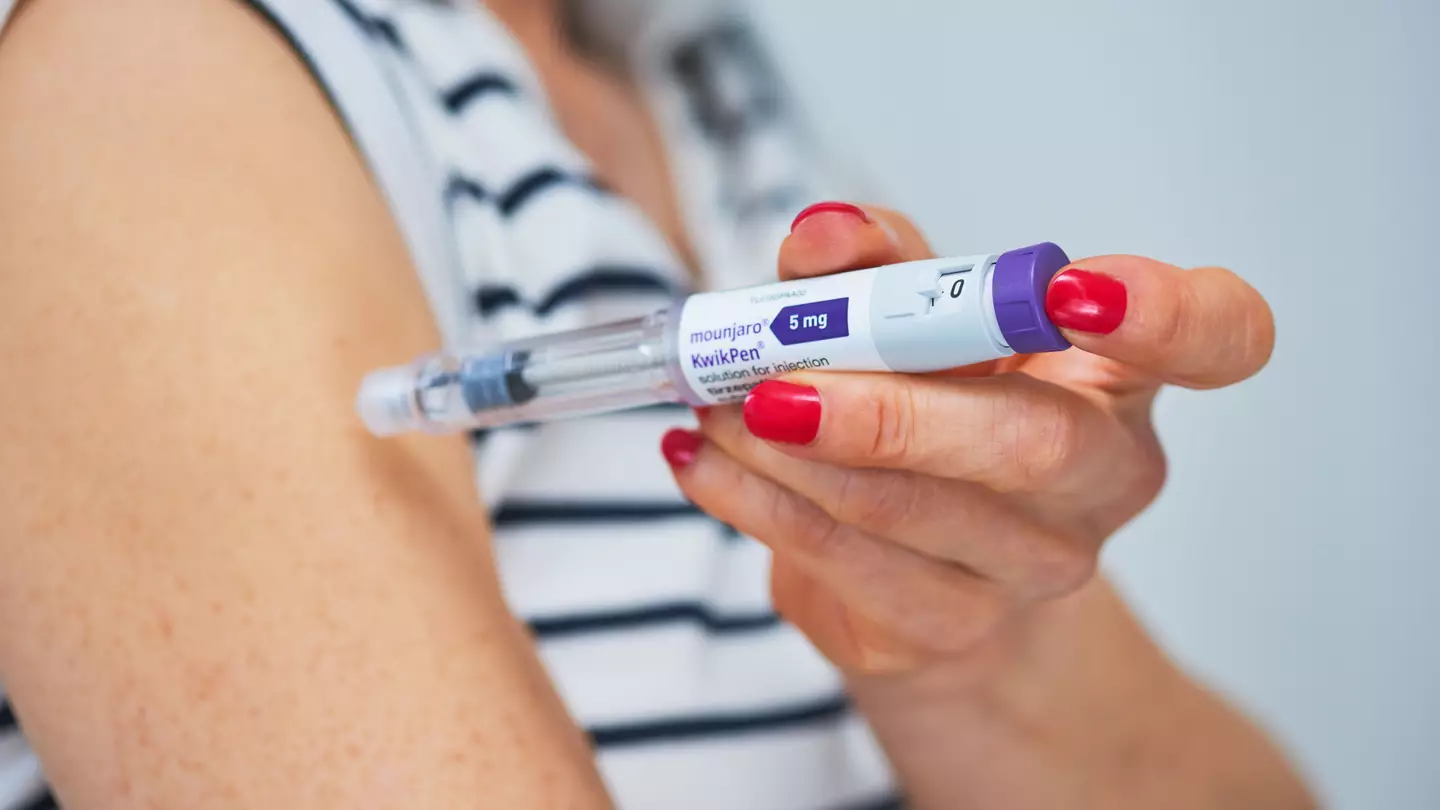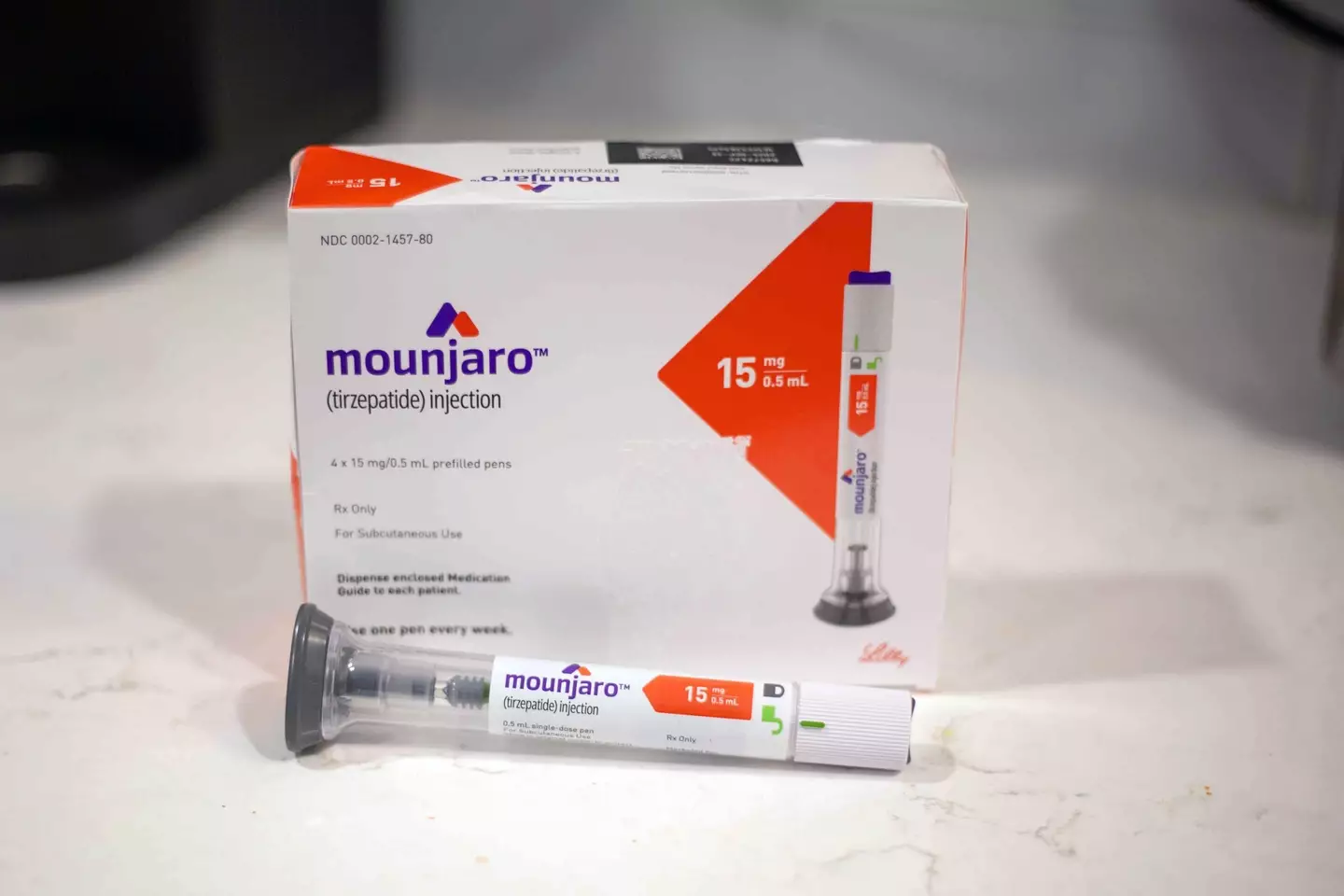
Health experts have urged GPs to be on their A-game when it comes to dealing with patients who are taking weight loss drugs.
Amid the rollout of Mounjaro across the NHS which began earlier this week, boffins from King's College London and the University of East Anglia have called on doctors to be extra vigilant.
Although these medications might be seen as miracle workers to some, using injectables does come with some risks - including the potential to contract two life-threatening conditions.
Celebrities such as Jeremy Clarkson and Gemma Collins have been vocal about their experiences of jabbing themselves with Mounjaro, but on the whole, less light has been shed on the dark side of these sort of medications.
Advert
That's why experts are in something of a panic about the potential for chaos erupting in the health sector now that doctors are able to prescribe the GLP-1 medication.
General practice expert from King's College London, Dr Laurence Dobbie, is one of the authors behind the latest guidance issued to GPs in the UK, and he warned that taking drugs like Mounjaro can trigger deadly consequences.
"I've seen patients in primary care who are clearly taking the medications, but they haven't been given wrap-around care," he told the Daily Mail.
"More than a million people are taking these medicines privately and seeing GPs with lots of different problems. We want GPs to have the basic knowledge to prioritise patient safety and demystify side effects."
But before we dig into all of that, let's bring you up to speed on what's going on with Mounjaro in the UK at the moment.

What is Mounjaro?
For those who may have been living under a rock and somehow haven't heard the term 'Mounjaro' yet, welcome to the party.
Like Ozempic, it is a weight loss drug, but the primary use for the prescription medication is to treat patients with type 2 diabetes.
But in terms of weight loss, it works by mimicking two of the hormones inside the human body, glucose‐dependent insulinotropic polypeptide (GIP) and glucagon-like peptide-1 (GLP-1).
Each of these helps to stabilise the body's blood sugar levels and reduce our appetite.
So when the drug is injected, patients feel fuller for longer after meals - so as a result, they lose weight.
Reports suggest that there are now about 1.5 million people in the UK who are using GLP-1 jabs to aid weight loss.
How has Mounjaro been rolled out in the UK?
Since Monday (23 June), GPs have been given the power to prescribe Mounjaro - which is also known as tirzepatide - to patients in England.
The NHS said it would first be offered to people who are facing the most significant health risks as a result of being overweight, with Brits becoming eligible for the prescription through primary care services from this month.
It is thought that there are about 220,000 people who fit into this category of being in the 'greatest need' of the drug, which is created by pharmaceutical firm Eli Lilly.
These patients are set to receive it via the NHS over the next three years and each of them will also get 'wrap-around care', like Dr Dobbie mentioned earlier.
This includes support with exercising, advice on leading a healthy lifestyle and regular health check-ups.
In the long-term, it is hoped that Mounjaro will become more widely available on the NHS, meaning more people in need will be able to get their hands on it via their GP.

What criteria needs to be hit to qualify for Mounjaro on NHS?
Doctors aren't just handing this stuff out willy-nilly, as patients have to meet a certain criteria to be eligible for Mounjaro on the NHS.
As we've established, the people who are in the most need get first dibs - and they will be able to pick up the jabs from their GP or a community clinic.
Patients must have a Body Mass Index (BMI) of 40 or over, or 37.5 if they come from a minority ethnic background to satisfy the requirements for a Mounjaro prescription, but that's not all.
Those who want the weight loss drug must also be suffering from four out of five of the following conditions: type 2 diabetes, high blood pressure, heart and vascular disease, high cholesterol and obstructive sleep apnoea.
If you tick all of these boxes, the NHS will likely deem you to be one of the people with the 'greatest need' for Mounjaro.
What are the red flag symptoms of Mounjaro?
A lot of the British public are aware of the potential side effects that come with taking weight loss drugs like Mounjaro, but some people aren't clued up on some of the more serious complications which can arise.
That's why the King's College London and the University of East Anglia issued their latest guidance to GPs about the importance of spotting the signs of two potentially deadly conditions which can crop up while taking the medication.
Patients can end up with acute pancreatitis - a condition where the pancreas quickly becomes inflamed - or biliary disease, a condition which impacts the bile ducts, gallbladder and other elements of the body which are involved in the production and transportation of bile.
Both of these conditions can wreak havoc on your digestive organs if left untreated, causing complications which ripple across your entire body - or, in the worst case scenario, even death.
Experts have urged doctors to keep an eye out for four 'red flag' symptoms which could suggest a patient is suffering from either one of these illnesses.
These include dizziness, falls, gastrointestinal symptoms or rapid weight change, according to the boffins.
GPs have also been urged to ask patients in a 'non-judgemental' manner if they are using weight loss medications, as a lot of people get them privately.
Brits must be warned to stop the jabs if they are trying for a baby due to the unknown risks posed to foetuses, doctors have been told, while patients should also be informed to stop the jabs a week before surgery.
Professor Barbara McGowan, from King's College London, added: "These tips aim to upskill GPs in the management and monitoring of patients on these medications.
"By embedding these recommendations into routine clinical practice, we can ensure patient safety and optimise the care of individuals living with obesity."
Eli Lily, the manufacturers of Mounjaro, told LADbible in a statement: "Patient safety is Lilly’s top priority.
"We take reports regarding patient safety seriously and actively monitor, evaluate, and report safety information for all our medicines.
"Adverse events should be reported under the MHRA’s Yellow Card scheme, but may be caused by other factors, including pre-existing conditions.
"The Mounjaro (tirzepatide) Patient Information Leaflet warns that inflamed pancreas (acute pancreatitis) is an uncommon side effect (which may affect up to 1 in 100 people). It also advises patients to talk to their doctor or other healthcare professional before using Mounjaro if they have ever had pancreatitis.
"We encourage patients to consult their doctor or other healthcare professional regarding any side effects they may be experiencing and to ensure that they are getting genuine Lilly medicine."